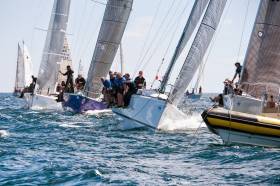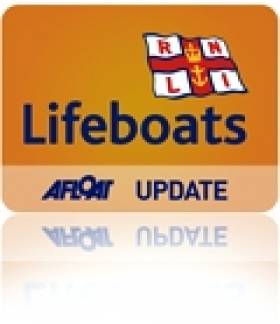Displaying items by tag: Crosshaven,
The Royal Ocean Racing Club (RORC) is promoting its inaugural European IRC Championship as part of Cork Week. The London club says the event will 'bring countries together'.
The International IRC Rating Rule, jointly owned by the Royal Ocean Racing Club (RORC) and l’Union Nationale pour la Course au Large (UNCL) will be attracting boats from all over the world to the port of Crosshaven in Ireland this year. From 10th to 15th July 2016 the Inaugural European IRC Championship will be take place during the already well-established and popular Volvo Cork Week hosted by the Royal Cork YC, the world’s oldest yacht club.
This exciting addition to the global IRC racing calendar promises to bring boats together from all corners of Europe, where over 4300 boats are IRC rated annually, but is open to all 6000 boats IRC rated worldwide. The Championship invites entries from boats with a valid 2016 IRC rating between 0.850 and 1.320 and the RCYC is expecting entries from 'around the globe'. Early entries include boats from Ireland, Northern Ireland, the UK, France, the USA and Australia, with interest from South Africa, making it a truly international event.
Back in 1990 Cork Week was the first regatta in the world to use the now ubiquitous windward/leeward race format, but even then the regatta included an innovative and varied mix of racing and 2016 is no exception: courses at the European IRC Championship will include Olympic, trapezoid, slalom and windward/leeward buoy courses plus an 8 hour coastal race, so every boat has a chance to shine on their preferred course type. Results will be calculated using the simple time-on-time IRC time corrector, so competitors can easily see how they are performing around the course.
Another addition to the Week this year is the inaugural International Inter Services Sailing Competition, the Beaufort Cup. Volvo Cork Week 2016 is shaping up to be another unforgettable regatta, and if you have a 2016 IRC rating you can be part of it!
Crosshaven RNLI Lifeboat Called Out Twice in Twenty Minutes
#lifeboat – Cork Harbour lifeboat volunteers were paged at 5.35pm yesterday afternoon to reports of a disabled boat with two persons on board between Fennels bay and Weavers point. The casualty vessel had deployed an anchor, but were dragging towards the shoreline.
Crosshaven Lifeboat helm Vincent Fleming, with crew Harry O'Rourke and Paddy Quinlan were soon in the area , but could not locate the casualty boat. Valentia Coast Guard Radio managed to establish Mobile contact with the boat, which had restarted its engine and sailed back to Ringaskiddy without informing anyone!
On returning towards Crosshaven, the crew came across another small vessel with two people on board which had broken down. The crew established a tow to the Point slipway before returning to station.






























































